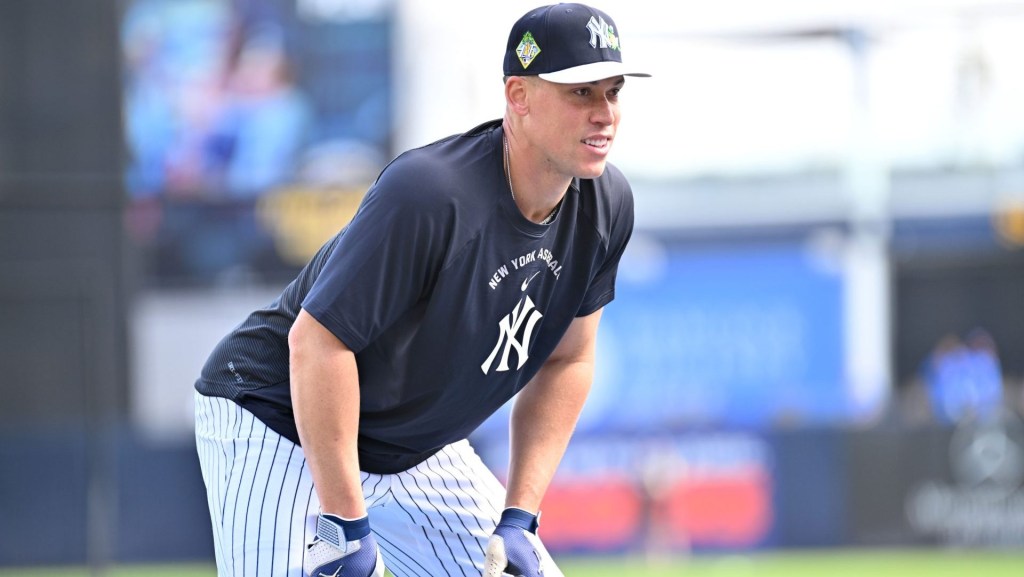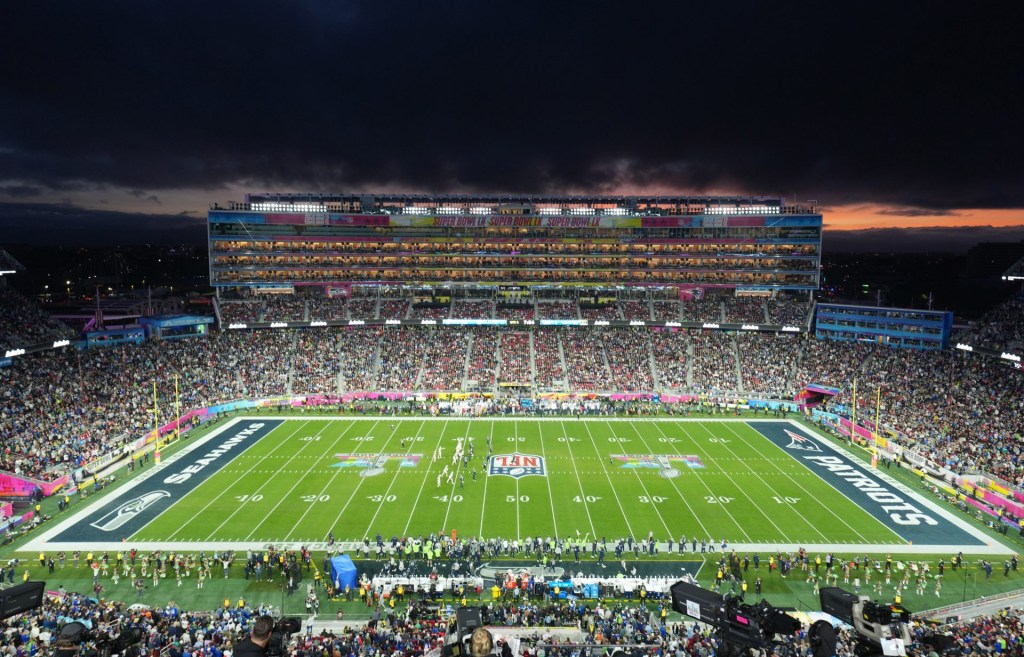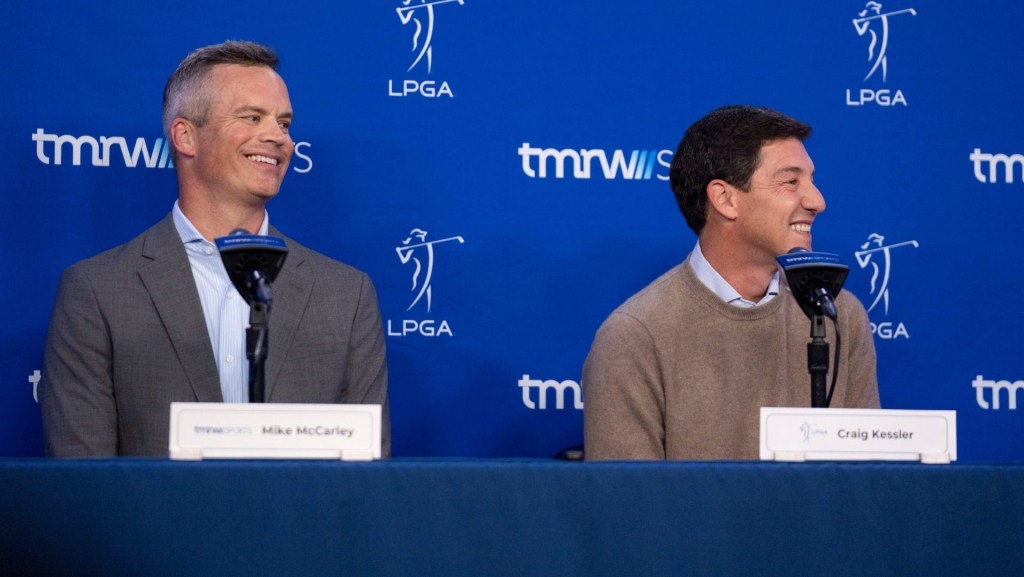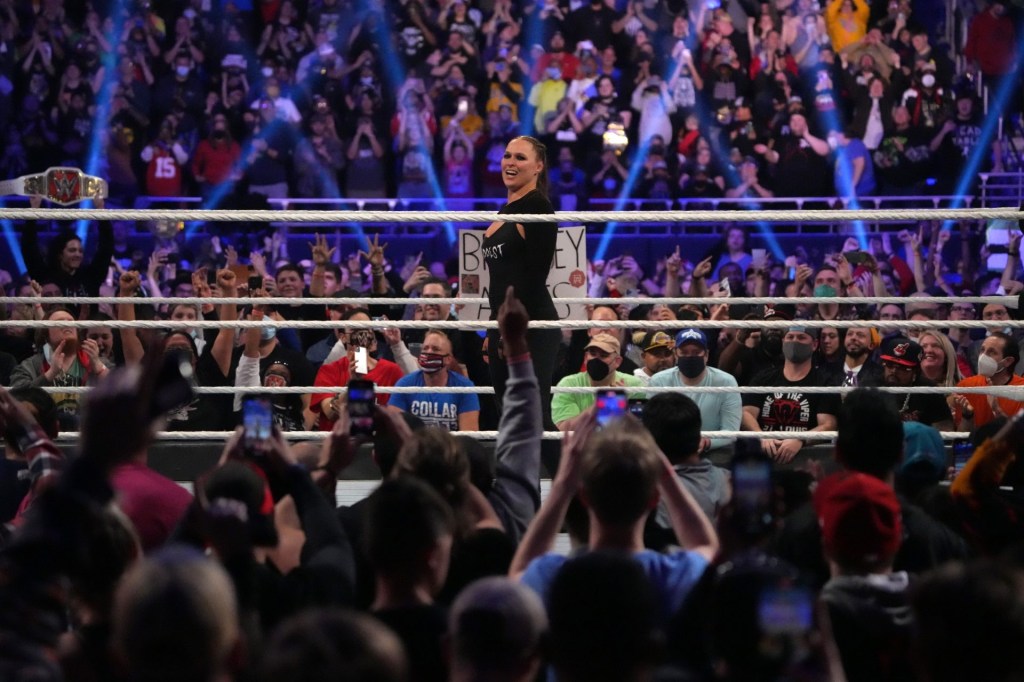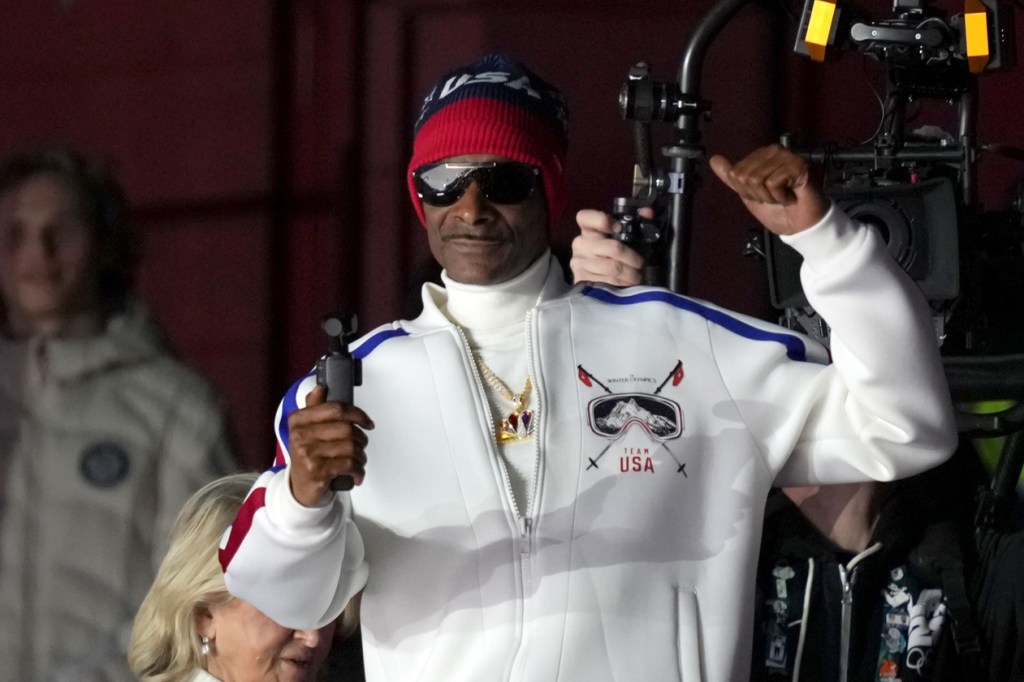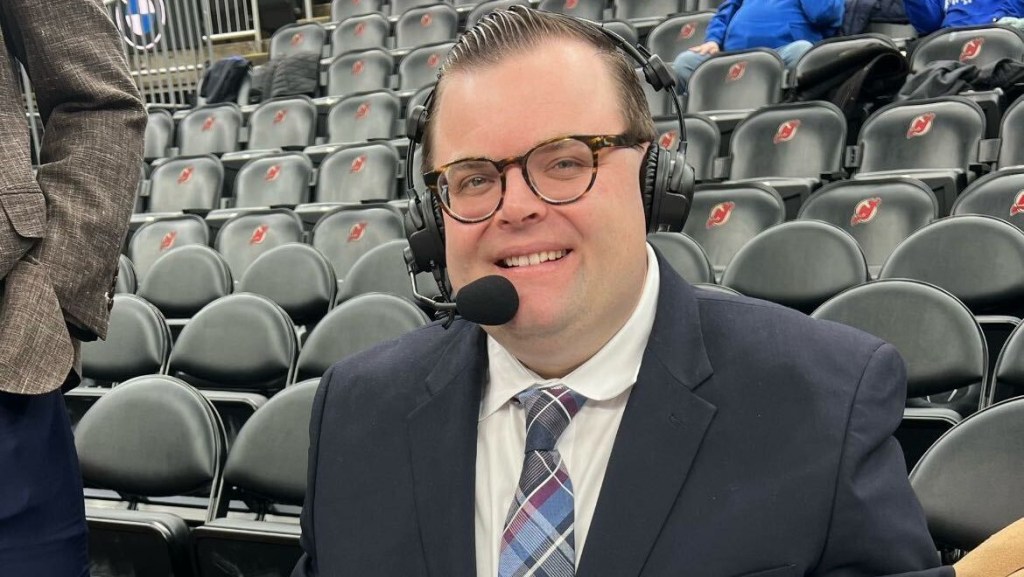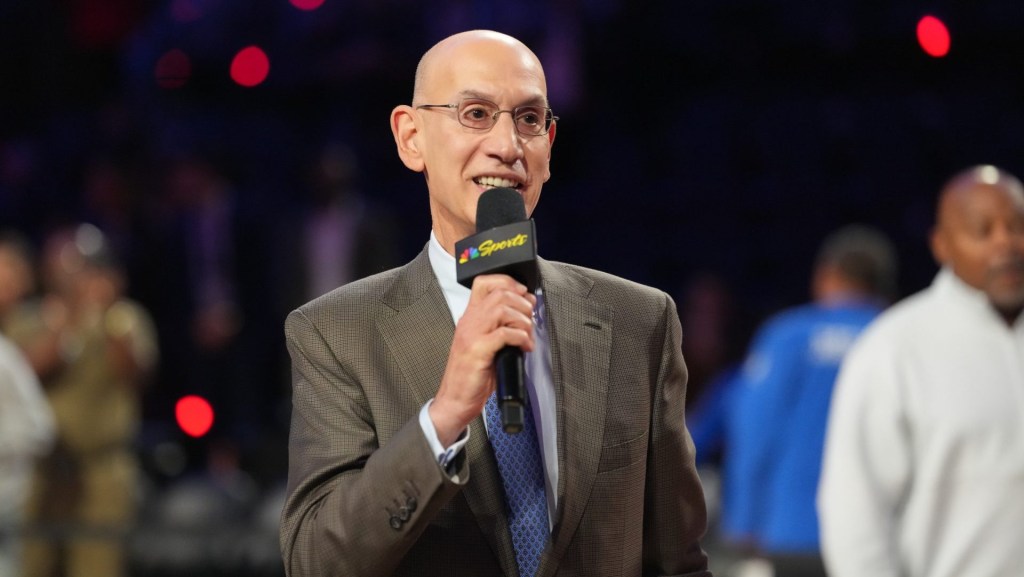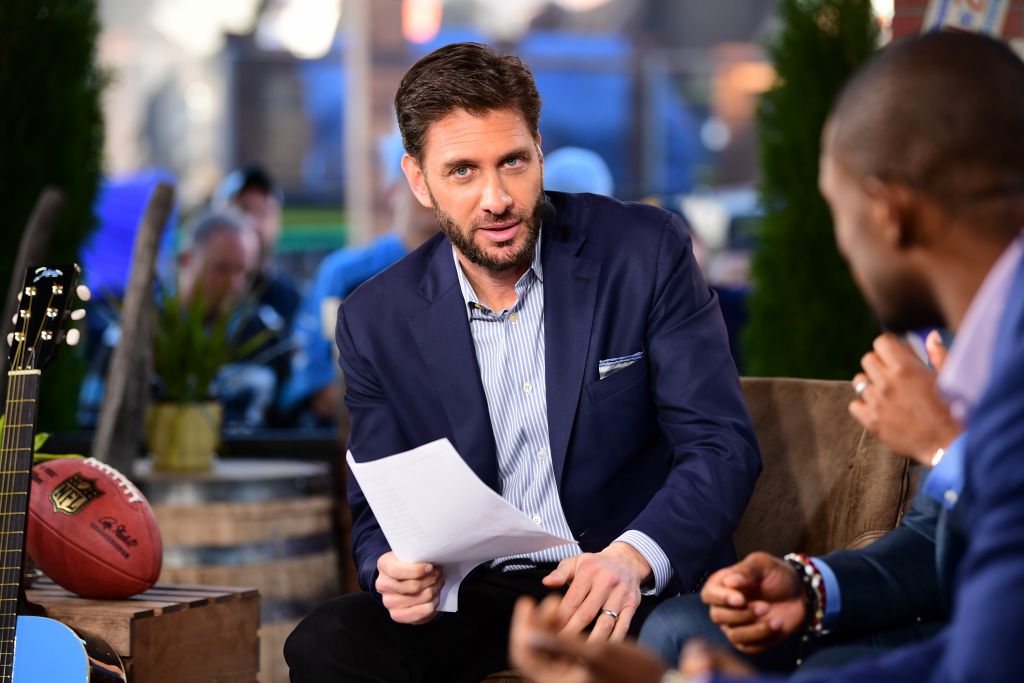
Dan Le Batard thinks ESPN is too “cowardly” to discuss politics or confront President Donald Trump. But ESPN shot callers like Mike Greenberg and Norby Williamson tell Front Office Sports they agree with ESPN President Jimmy Pitaro’s policy of avoiding politics unless it directly intersects with sports.
They vow to steer clear of the heated 2020 U.S. Presidential Election, when Trump will likely battle a Democratic challenger for a second term.
Both Greenberg and Williamson have far more influence on ESPN than the iconoclast Le Batard. Over the last few weeks, FOS interviewed Greenberg, host of the network’s flagship Get Up morning show, and Williamson, boss of all of ESPN’s opinion, talk and news shows, on a variety of topics.
But with the 2020 election only 16 months away, and ESPN still smarting from Trump’s public attacks on Twitter in 2017, the interviews always came back to politics. Will ESPN cover Trump on Get Up or other studio shows? Will ESPN allow on-air talent to sound off on presidential candidates they support or oppose?
The answer from Greenberg and Williamson to both questions: a firm no.
Greenberg noted his weekday morning show found its footing when he stuck to ESPN’s bread and butter of sports and highlights.
“I believe our audience has spoken to me loud and clear and said, ‘We want you to do sports.’ And so that’s what we’re going to do,” promised Greenberg.
Yes, there will be “incredibly important” political discussions taking place next year, he added. But ESPN is not the place for it.
If TV viewers want politics, Greenberg noted there’s plenty of other cable news channels to watch. If they want to “escape” the culture wars roiling the country and talk football this fall then tune in to Get Up.
“I think it is a great position to be in, to be the ones doing that. And that is 100% what we plan to be,” Greenberg said.
Williamson, ESPN’s executive vice president, events and studio production, oversees everything from Get Up and First Take to SportsCenter and Outside the Lines.
Despite critics like former ESPN anchor Jemele Hill warning sports and politics have always been intertwined, the Worldwide Leader in Sports will stick to what it does best, according to Williamson, who also serves as executive editor.
“Listen, we have a hard enough time covering sports. That’s our area of sophistication. That’s our area where we’re supposed to be the best,” he said. “We make mistakes in that area. And that’s where we are going to focus.”
(Both Greenberg and Williamson commented to FOS on ESPN’s no politics policy before, not after, the Le Batard controversy).
READ MORE: If ESPN Cuts Ties with Dan Le Batard, Is DAZN Waiting in the Wings?
The Le Batard imbroglio erupted when supporters at a Trump rally chanted “send her back” about Somali refugee-turned U.S. Congresswoman Ilhan Omar. The next day on ESPN Radio, Le Batard took on not only Trump, but his own employer’s “weak-ass” position toward political talk.
Even ESPN’s producers appeared to get nervous as Le Batard declared his bosses didn’t “have the stomach” for the fight, switching the TV camera away from him to somebody else in the studio.
The reaction was swift at ESPN headquarters in Bristol, Conn. Pitaro ordered the Miami-based Le Batard to a sit-down in New York on July 25. A “shaken” Le Batard came out of the meeting visibly scared for his future at ESPN, according to a source.
But the son of Cuban immigrants appeared to escape the furor he ignited without the public suspension, or loss of salary, that ESPN has previously levied against wayward talent like Hill, Bill Simmons and Tony Kornheiser.
In the future, Le Batard has promised to check with his higher-ups before he talks politics, according to Ben Strauss of the Washington Post. First Take’s Smith, ESPN’s biggest star, also sought clarification from Pitaro on what he can and can’t address heading into 2020, wrote Strauss.
Like an ocean liner, ESPN tends to turn slowly when it comes to disciplining talent. Yes, ESPN ended up buying out Hill’s contract for millions after she called Trump a “white supremacist” on Twitter.
But it wasn’t that tweet about Trump that got her suspended. Instead, it was her subsequent suggestion that fans boycott the corporate sponsors of Dallas Cowboys owner Jerry Jones that was the last straw. Le Batard might have gotten a final warning.
In an article for The Atlantic, Hill supported Le Batard. She warned ESPN “can never just ignore the racism and bigotry flowing” from the Trump White House.
“ESPN, like any major network, hires commentators who have big personalities and bold opinions,” wrote Hill. “And yet the executives often seem more concerned with placating some white fans than respecting the fact that so many men and women of color are profoundly appalled by the Trump administration’s policies and the president’s hurtful rhetoric.”
But Pitaro argues he has data on his side. The network’s research department has found that viewers seek out ESPN as a respite from the political news cycle.
Across party lines, 74% of sports fans, and 85% of avid fans, said they preferred not to hear politics on ESPN. Republicans (84%) support the no politics policy more than Democrats (69%), according to the research.
“There are so many places where I get news about politics, and I don’t need it on ESPN,” said one focus group participant.
Meanwhile, ESPN is just emerging from a brutal period where it was under attack by Trump and critics such as Clay Travis and Drudge Report for its allegedly liberal political bent. The last thing ESPN or parent Disney wants is for the outspoken Le Batard to resurrect that debate, said ESPN author James Andrew Miller on Richard Deitsch of The Athletic’s Sports Media podcast.
“This branding, or this idea, that ESPN was the MSNBC of sports, or it had a political agenda attached to it, was probably the most challenging aspect for the company and for Disney,” said Miller.
READ MORE: Shot Callers – Mike Greenberg, Host, ESPN
Like it or not, ESPN has been and should be about sports, according to Greenberg. When it comes to why viewers ultimately choose ESPN, he uses a favorite analogy.
“When I go to McDonald’s, I go there because I want to have a hamburger. And if I walked into McDonald’s and they said to me, ‘We’re not doing hamburgers today, we’re doing pizza,’ I’d say, ‘What are you talking about? You’re McDonald’s. What you do is hamburgers. If I wanted pizza, I would go to one of the places where they make better pizza than you do.’”
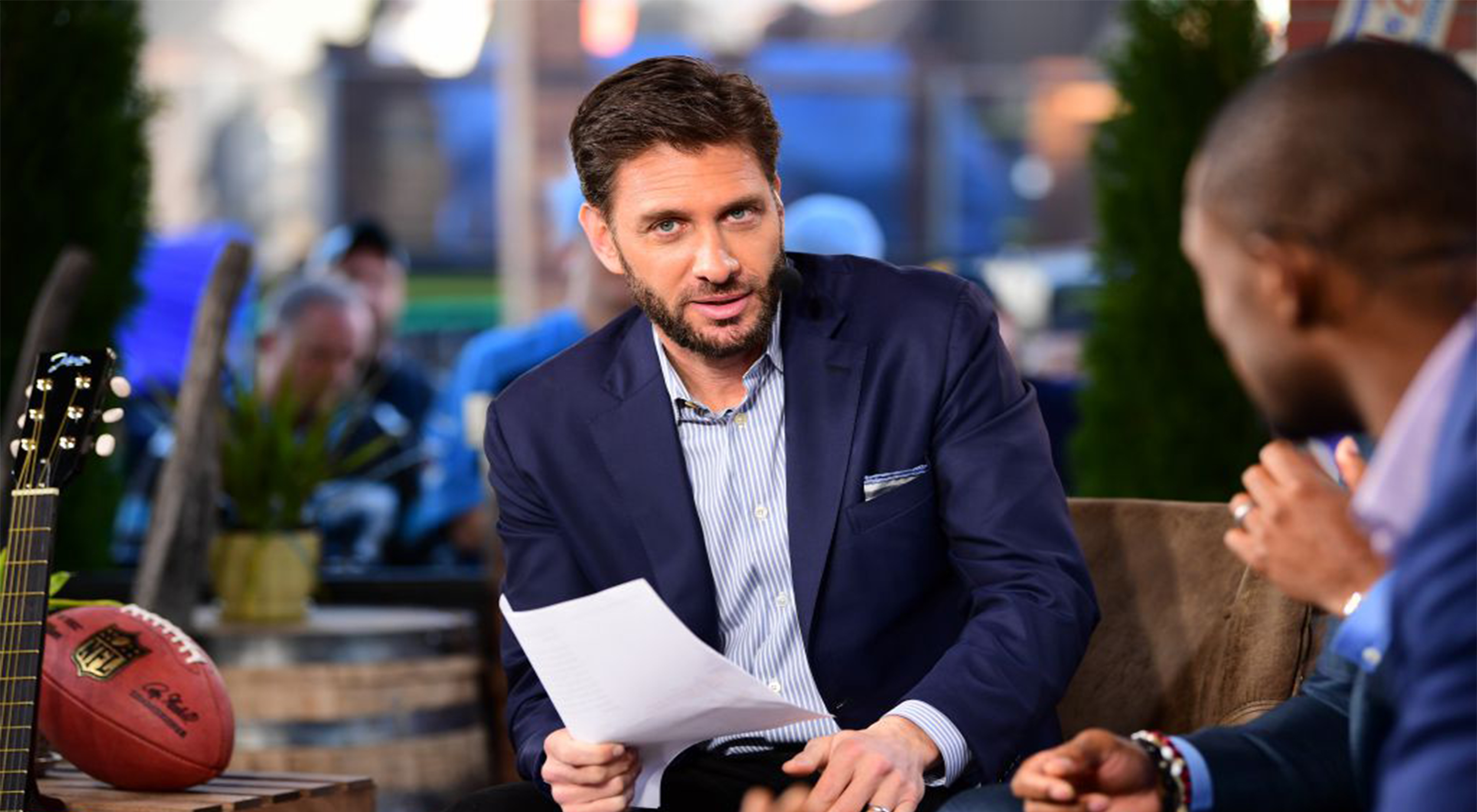

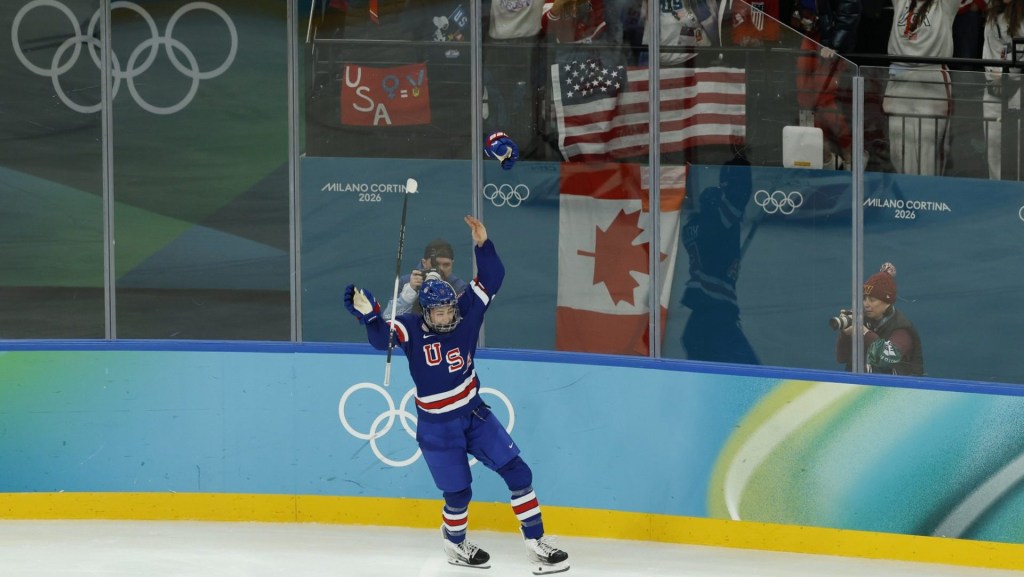
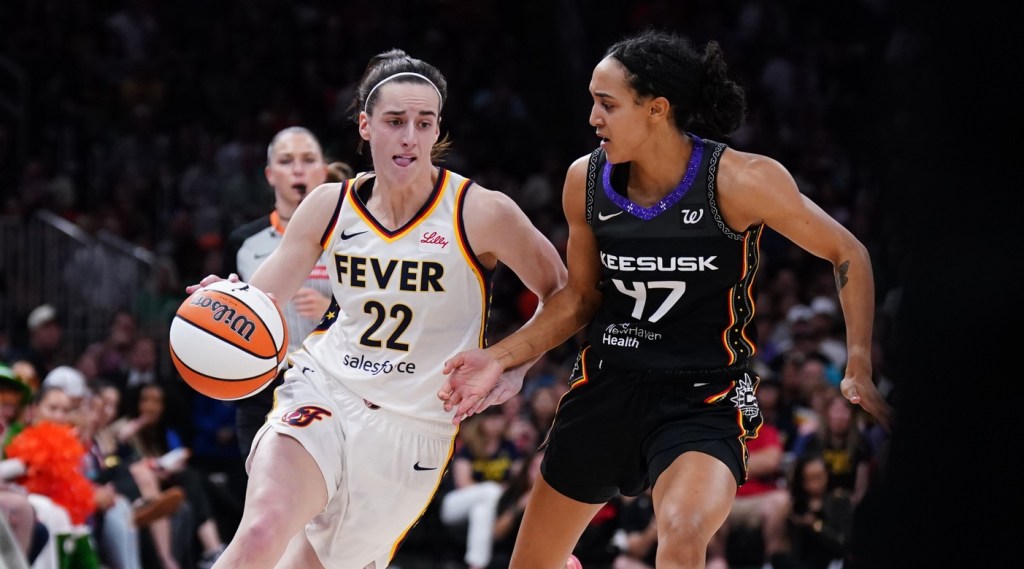
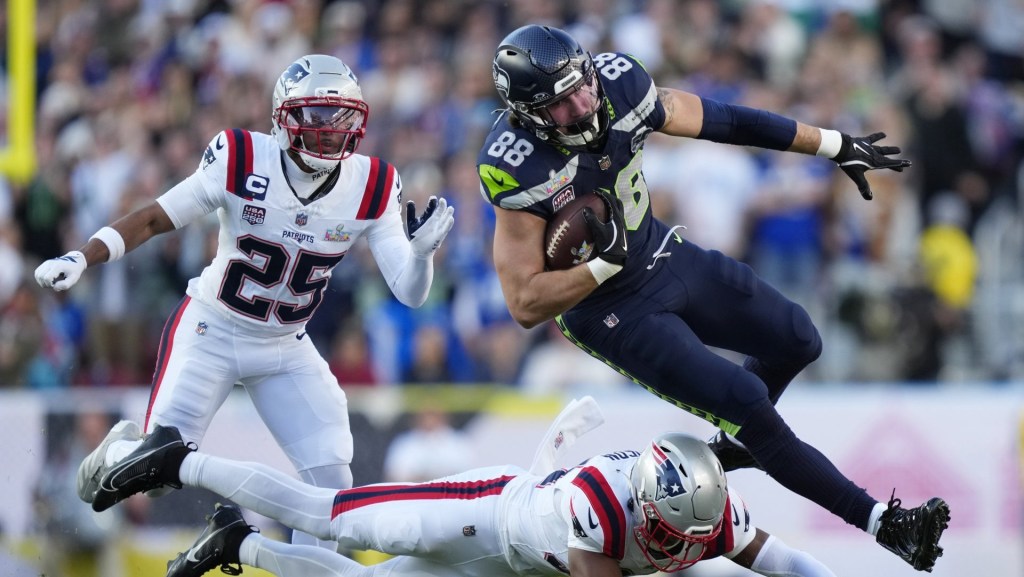
![[Subscription Customers Only] Jul 13, 2025; East Rutherford, New Jersey, USA; Chelsea FC midfielder Cole Palmer (10) celebrates winning the final of the 2025 FIFA Club World Cup at MetLife Stadium](https://frontofficesports.com/wp-content/uploads/2026/02/USATSI_26636703-scaled-e1770932227605.jpg?quality=100&w=1024)



